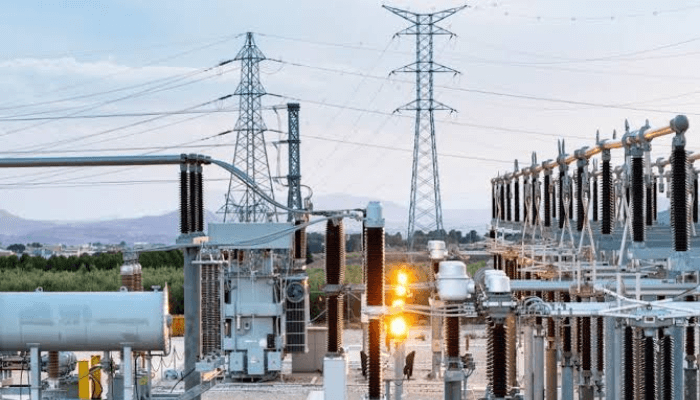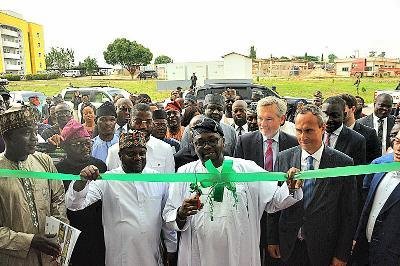Nigeria’s power sector, long plagued by issues of inadequate infrastructure and a shortage of skilled professionals, has received a significant boost with the commissioning of five new training workshops and a 104-room hostel at the National Power Training Institute of Nigeria (NAPTIN). This development is not just a ribbon-cutting ceremony; it represents a deliberate move to build technical capacity, modernise training, and address one of the critical bottlenecks in the country’s electricity industry.
Table of Contents

Building Skills for a Stronger Power Sector
NAPTIN, established to be the engine room for grooming Nigeria’s power sector workforce, has often struggled with outdated facilities, limited space, and a curriculum that could not always keep pace with the fast-changing global energy landscape. With these new investments, the story is changing.
The newly unveiled five training workshops are equipped with modern tools and technology. They are designed to expose trainees to practical, hands-on sessions that replicate real-life challenges faced in electricity distribution, transmission, and generation. This is a significant upgrade from the purely theoretical training approach that has previously left many graduates struggling when confronted with on-the-job realities.
In addition, the 104-room hostel answers a long-standing challenge. For years, many aspiring trainees, especially those travelling from outside Abuja or other parts of the country, faced difficulties securing safe and affordable accommodation. The hostel ensures that students can now focus fully on learning without the distraction and stress of logistics or daily commuting.
For Nigeria, which continues to battle epileptic power supply despite massive investments in generation, having a skilled workforce is central to achieving reliable electricity. These new facilities are therefore more than buildings; they are a lifeline for capacity building and professional development.

Why This Matters for Nigeria’s Energy Future and the Power Sector
The state of power supply has been one of Nigeria’s most stubborn challenges. Businesses spend heavily on generators, families endure blackouts, and the economy loses billions of naira annually due to unreliable electricity. While infrastructure gaps remain a big part of the problem, the shortage of adequately trained manpower is equally crippling.
By expanding NAPTIN’s facilities, the federal government is directly addressing this gap. More engineers, technicians, and energy professionals will now have access to modern training that meets international standards. This means faster repairs during outages, better preventive maintenance on transmission lines, and an overall improvement in efficiency within the system.
The impact also extends to job creation. NAPTIN graduates are increasingly sought after not only by Nigerian companies but also by international energy firms and renewable power projects. With the global energy transition accelerating, young Nigerians equipped with the right skills can take up roles in solar, wind, and hybrid power installations across Africa and beyond.
For communities, the benefits trickle down in very practical ways. Stable electricity means hospitals can run equipment without interruptions, schools can offer digital learning tools, businesses can extend working hours, and households can enjoy a better quality of life.
Challenges and the Road Ahead
As promising as this development is, experts caution that facilities alone are not enough. The long-term success of NAPTIN’s expansion will depend on how well the institute is maintained and continuously upgraded. Training equipment can quickly become obsolete if not updated to match global industry shifts. Curriculum reforms will be required regularly to keep pace with new technologies like smart grids, off-grid solutions, and energy storage systems.
Another critical issue is the trainers themselves. A facility is only as strong as the people who run it. Nigeria must ensure that NAPTIN instructors are given continuous professional development, opportunities for exchange programmes abroad, and exposure to real industry challenges. Without this, there is a risk of creating modern infrastructure but leaving the human element behind.
Industry partnerships will also be crucial. The power sector is highly practical, and trainees need more than workshop simulations. Collaborations with electricity distribution companies, transmission agencies, renewable energy firms, and even international donors can provide NAPTIN students with internship opportunities, field placements, and research projects that prepare them for the demands of the real world.
Despite these challenges, the opportunities are significant. With proper management, NAPTIN could position itself as a regional centre of excellence in West Africa, attracting students from neighbouring countries and forging partnerships with global energy institutions. This would not only boost Nigeria’s reputation in the sector but also generate foreign exchange and knowledge exchange opportunities.

A Defining Moment for Nigeria’s Power Sector and Workforce
The expansion of training facilities at NAPTIN marks a defining moment in Nigeria’s quest for a reliable power supply. While power generation projects and grid expansions often dominate the headlines, the truth is that no infrastructure can succeed without the skilled people to design, maintain, and operate it.
By investing in human capital through institutions like NAPTIN, Nigeria is laying the groundwork for long-term energy stability. For young Nigerians seeking a future in the energy industry, the message is clear: the doors of opportunity are opening wider. For businesses and communities weary of blackouts and the cost of self-generation, there is renewed hope that a stronger, better-trained workforce can gradually close the gaps in power supply.
Ultimately, the success of this initiative will be measured not by the number of rooms or workshops built, but by the quality of graduates produced and the real-world impact they bring to Nigeria’s electricity sector. The expansion is therefore a promising start, but it must be matched with a continuous commitment to innovation and accountability.
Join Our Social Media Channels:
WhatsApp: NaijaEyes
Facebook: NaijaEyes
Twitter: NaijaEyes
Instagram: NaijaEyes
TikTok: NaijaEyes




